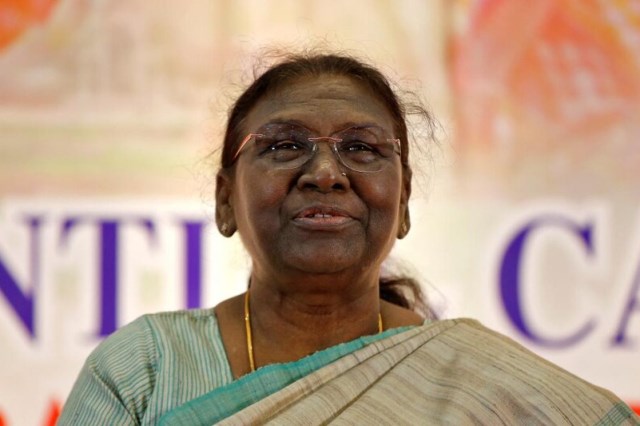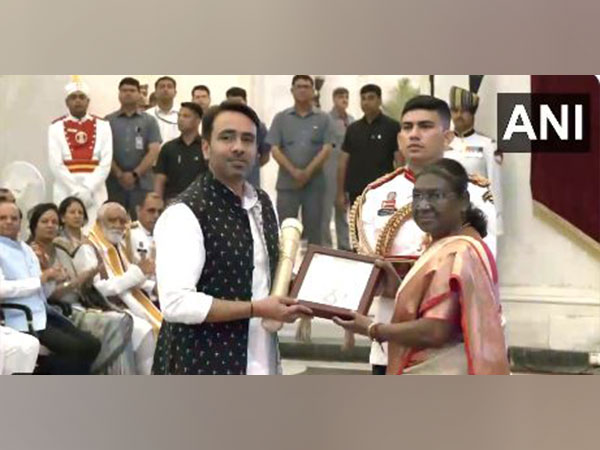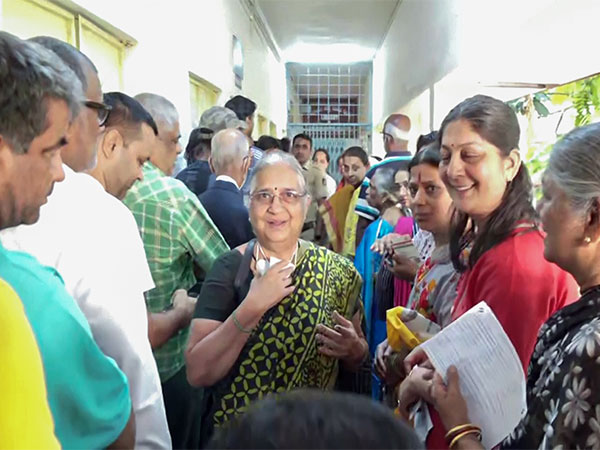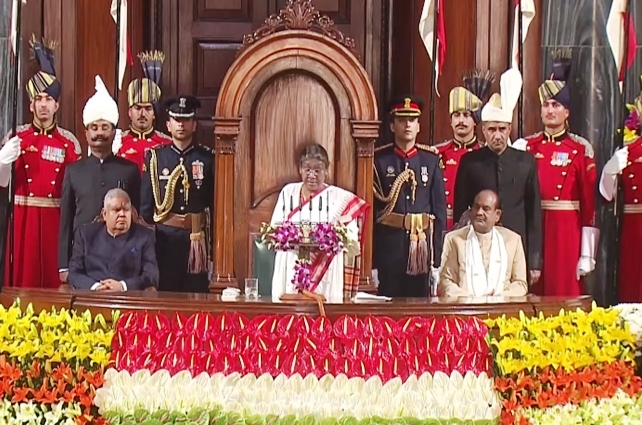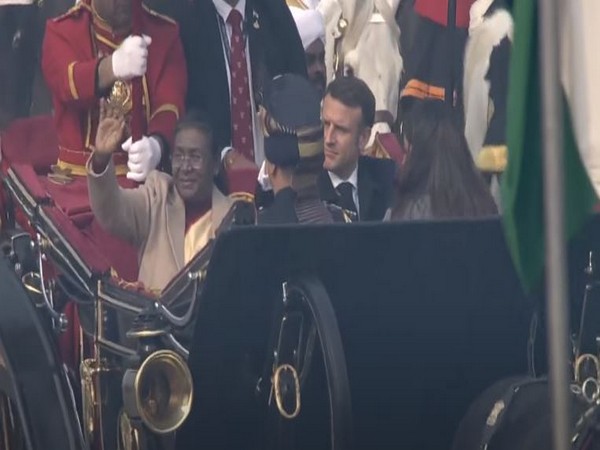The budget session of Parliament, the last session before Lok Sabha polls expected to be held in April-May this year, will commence on Wednesday with President Droupadi Murmu addressing a joint sitting of Lok Sabha and Rajya Sabha in the new Parliament building.
Finance Minister Nirmala Sitharaman will present the interim budget on February 1.
The government convened an all-party meeting ahead of the session and struck a conciliatory note with the opposition, stating that it had urged the presiding officers of Lok Sabha and Rajya Sabha to revoke the suspension of MPs, who had been suspended during the winter session of Parliament.
Parliamentary Affairs Minister Pralhad Joshi told reporters after the all-party meeting that it was held in a conducive atmosphere.
“All (suspensions) will be revoked. I have spoken with the (Lok Sabha) Speaker and (Rajya Sabha) Chairman, I have also requested them on behalf of the government…This is the jurisdiction of the Speaker and the Chairman. So, we have requested both of them to speak with the concerned privileged committees, revoke the suspension and give them the opportunity to come to the House. Both of them agreed,” Joshi said.
Asked if the suspended MPs will come to the House from tomorrow, Joshi said “yes”.
An unprecedented 146 opposition MPs were suspended from Lok Sabha and Rajya Sabha during the winter session of Parliament for “violating rules”.
Joshi said that 45 leaders from 30 parties, including the ruling BJP, attended the meeting. “The meeting was held in a conducive atmosphere. This is a short session and the last one of the 17th Lok Sabha. We have requested the MPs to not come with placards,” Joshi said.
Congress leader Pramod Tiwari said that inflation and unemployment are two important issues that the party would raise in the budget session.
“Inflation and unemployment are two important issues which we will raise in the upcoming session. Investigative agencies are being misused. The latest example of the way ED is working is that of Jharkhand’s CM Hemant Soren. Apart from this, atrocities continue in Manipur. I specifically want to say that the debt burden on the country is increasing,” he said.
“I have raised issues regarding economic situation, federal structure, violent attacks on Rahul Gandhi’s Yatra in Assam, doubling the income of farmers, ED-CBI raids, caste census among others,” he added.
Asked about Congress chief Mallikarjun Kharge’s remarks that there will be “no more polls if PM Modi wins,” Tiwari alleged that the government doesn’t believe in democracy.
“What if they change the election process? The public should use its rights and root out the Modi government,” he said.
Congress MP K Suresh accused the BJP government of using central agencies as weapons against the opposition. “They want to destabilise the opposition as they are scared of opposition unity.”
TMC MP Sudip Bandyopadhyay alleged that the government is not willing to answer questions.
“We also raised the issue of suspension of 150 MPs but the attitude of the government is not to reply to any question.”
The budget session will conclude on February 9.
The Committee of Privilege of Rajya Sabha held 11 suspended members guilty of breach of Privilege and contempt of the council but Chairman Jagdeep Dhankhar invoked his authority and revoked the suspension of all 11 members.
The decision was taken to enable the members to attend the historic Special address by the President in the New Parliament Building, sources said.
The committee of Privileges of Rajya Sabha held 11 members – Jebi Mather Hisham, L Hanumanthaiah, Neeraj Dangi, Rajmani Patel, Kumar Ketkar, GC Chandrashekhar, Binoy Viswam, Sandosh Kumar, M Mohamed Abdulla, John Brittas, and AA
Rahim – guilty of breach of privilege and contempt of the Council.
It had further recommended that the period of suspension already suffered by the members be treated as sufficient punishment for the transgression.
Taking note of the situation that the suspended Members would not be able to attend the Special Address of the President to both the Houses of Parliament assembled together, the Committee presented the report to the Chairman Rajya Sabha.
The Chairman invoked the authority vested in him to revoke their suspension enabling the members to attend the Special address by the President. (ANI)
For more details visit us: https://lokmarg.com/
